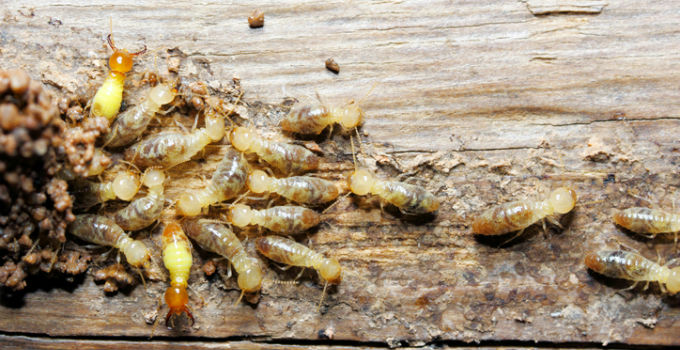Termites are one of the most frustrating and common infestations homeowners experience in Wilkes-Barre, PA. These tiny insects can cause significant damage to your home because they feed off of wood and more! Ultimately, a termite infestation can leave you stuck with a pile of bills for extensive repairs, and an uninhabitable house.
So what can you do to avoid having termites in your home? Knowing what type of termite is most prevalent in our area, what they’re attracted to, and how to identify possible damage are vital to keeping your home safe. In this guide to termite infestations, we’re going to explain everything you need to know about termites and how spot the signs of an active colony.
What is the most common type of termite in Pennsylvania?
There are over 2,000 different species of termite, but only a few varieties are known to cause damage to homes. The type of termite you might have in your home depends on your climate. Here in Pennsylvania, the winters are cold and snowy, and the summers are hot and humid. This regular humidity makes it the perfect environment for subterranean termites.
These termites require wood rich in moisture but they’re also one of the most damaging termites. They can construct expansive colonies, and they ferociously consume wood, which can lead to significant damage quickly.
What attracts termites to my home?
You might be surprised to learn that termites play an essential role in our world since they help break down decaying and dying plant material like tree stumps. It’s this ability to break things down that make them so destructive to homes. Subterranean termites can be found in moist soil, and they move to wood near the ground. They accomplish this feat through tubes they construct out of dirt, and their own saliva and feces.
That means that if your home happens to be in a humid area with regularly moist soil, termites could infest your home just because of the ground it was built on. This may not always be the case, though.
Even homes that weren’t built in moist soil are susceptible to termites because they are attracted to moisture in general. Leaky pipes, cracks in the house’s exterior, and poor air circulation can all cause moisture in the home, and eventually, attract termites.
What are signs of termite damage?
Unfortunately, identifying a termite problem isn’t always obvious since most people don’t become aware until extensive and visible harm has been done. Not to mention that termite damage can be easily confused with water damage or carpenter ant damage.
If you notice any of these signs, there’s a good chance you have a termite problem.
- Buckling wood
- Swollen floors and ceilings
- Similar smell to mildew
- Mud tubes in your basement
If you think you may have termites in your home, call Seitz Bros. for an inspection.
What should I do if I suspect a termite infestation in my home?
Since a termite infestation can quickly get out of control, it’s important to call a professional exterminator to determine if there is termite activity and to what extent. Typically, when people start to see visible signs of termites, a great deal of destruction has already happened. To grasp the scale of the infestation and create an effective plan of action, you need to work with an experienced termite control professional. Subterranean termite infestations are not a problem you can fix yourself.
How can Seitz Bros. get rid of termites?
Termites cause billions of dollars of damage to American homes every year. Don’t be one of the thousands of people dealing with termites in Wilkes-Barre, PA. If you suspect that you have a termite infestation, don’t hesitate one second longer. The termite specialists at Seitz Bros are experts in identifying and treating termite infestations, and we have different options to fit your needs. Contact us today by filling out the contact form on this page or giving us a call to find out more about how we fight termites and schedule a free inspection.
How Can I Tell if I Have Termites in My Wilkes-Barre, PA House Pest Control in Pennsylvania & New Jersey?
Serving Northeast & Central PA | Lehigh Valley | Pocono Mountains | Western NJ

